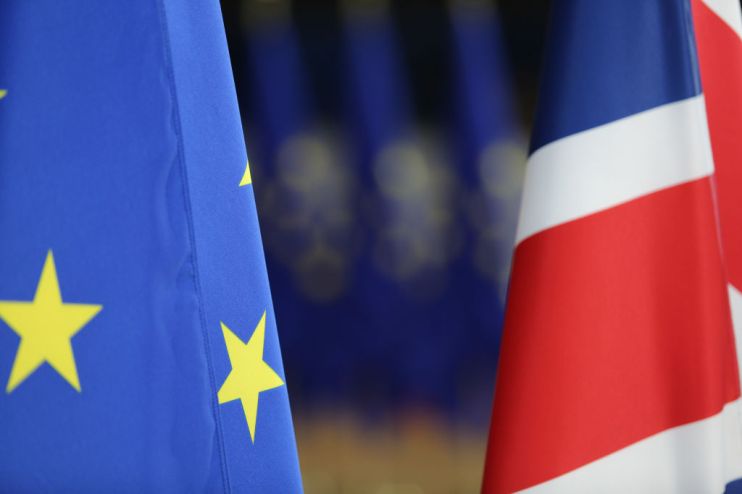Brexit: UK-EU talks on Northern Ireland resume this week as UK sets ‘no time limit’ on discussions

Talks between the UK and the EU on the post-Brexit Northern Ireland Protocol will resume this week, with Number 10 today putting no “set limit” for how long negotiations will drag on.
Defacto Brexit secretary Lord David Frost and his EU counterpart Maros Sefcovic will meet twice this week to try and move talks forward, after months of little movement.
Northern Ireland still follows EU single market and customs union rules, unlike the rest of the UK, to ensure there is no hard border with the Republic of Ireland.
Both sides have acknowledged the Northern Ireland Protocol, agreed in the Brexit Withdrawal Agreement, is causing economic and political damage due to the stringency of border checks on goods going from Great Britain to Northern Ireland.
The UK is calling for there to be no checks on any goods that are declared to be only for use in Northern Ireland.
The EU is proposing a large reduction in border checks, particularly on key goods like medicines and food, but says it needs to maintain some to stop goods illegally entering its single market through Northern Ireland.
A Number 10 spokesperson today said: “Certainly we want this to progress as quickly as possible. [Frost and Sefcovic] will speak twice this week … in the hope to make further progress for agreed solutions before Christmas. We’re not putting a set limit for how long these discussions will go on for.”
Another key issue in the talks is the role of the European Court of Justice (ECJ).
Frost wants the ECJ to lose its role as overseer of the treaty, despite the fact that he himself signed up to this arrangement in 2019, however Brussels says this is a non-starter.
Number 10 has denied reports from last week that the UK has backed down on this key ask.
“The Court of Justice remains a central issue to the discussions we have. We cannot have a situation where the court of one country – the EU – is the final arbiter between the two countries,” a spokesperson said.
“We believe that the protocol as it is, including governance, is not delivering of the people of Northern Ireland and businesses there. Trying to resolve it without addressing the governance issue will lead to long term problems and we want to resolve that now.”